Blueberry
How to submit an article:
- Registered users can submit any published journal article that has a unique DOI (Digital Object Identifier) name or link to Research Hub.
- For example, you can paste the full DOI link:
https://doi.org/10.1109/5.771073or just the DOI name:10.1109/5.771073into the field above and click submit. - The person who is first to submit a valid article to Research Hub will forever be credited for it, and every article submission earns you +6 Research Points.
Related Topics
Published research studies are articles that present the findings of original research that has undergone a peer-review process and has been made publicly available in scholarly journals, books or other media.
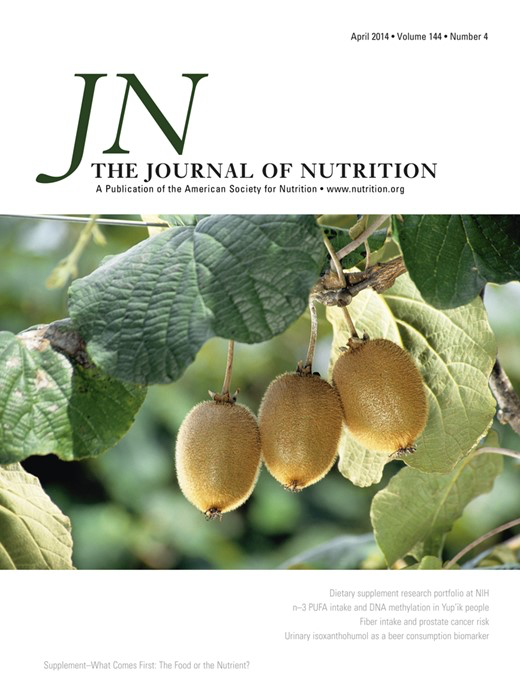
Intake of Blueberries, Anthocyanins, and Risk of Eye Disease in Women
2024 Apr The Journal of Nutrition Sesso HD, Rautiainen S, Park SJ, Kim E, Lee IM, Glynn RJ, et al.
Cohort Study Clinical Study Eye Health Age-Related Macular Degeneration Anthocyanins BlueberryGreater intake of blueberries considerably decreases the risk of age-related macular degeneration, while a remarkable dietary intake of anthocyanins inversely correlates with cataract incidents.
The Potential Effect of Blueberry on Cognitive Health and Mood State based on Human Intervention Studies: Systematic Review and Mini Meta-Analysis
2023 Aug CNS & Neurological Disorders - Drug Targets Soveid N, Barkhidarian B, Moradi S, Gholami F, Rasaei N, Himmerich H, et al.
Meta-Analysis Systematic Review Blueberry Cognitive FunctionBlueberry consumption significantly improves two-back test accuracy, suggesting potential cognitive benefits.
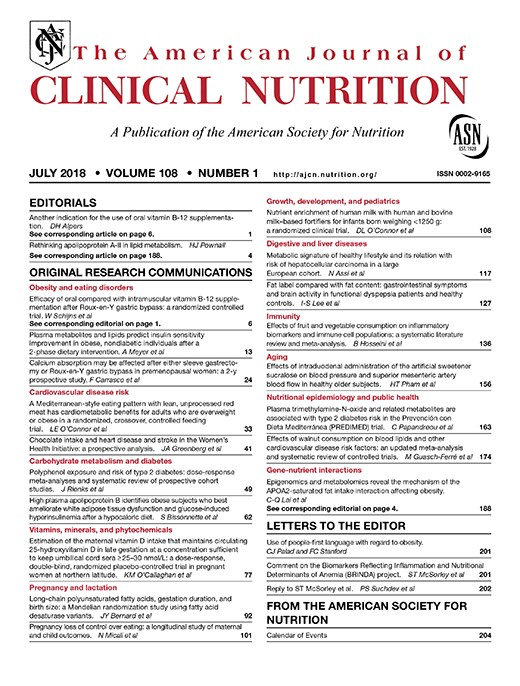
Moderate consumption of freeze-dried blueberry powder increased net bone calcium retention compared with no treatment in healthy postmenopausal women: a randomized crossover trial
2023 Aug The American Journal of Clinical Nutrition Hodges JK, Maiz M, Cao S, Lachcik PJ, Peacock M, McCabe GP, et al.
Experimental Study Clinical Study Randomised Controlled Trial Bone Calcium BlueberryModerate consumption of blueberries may effectively reduce bone loss in healthy postmenopausal women.

Wild blueberry (poly)phenols can improve vascular function and cognitive performance in healthy older individuals: a double-blind randomized controlled trial
2023 Jun The American Journal of Clinical Nutrition Wood E, Hein S, Mesnage R, Fernandes F, Abhayaratne N, Xu Y, et al.
Randomised Controlled Trial Cognitive Function Blueberry High Blood Pressure Cardiovascular DiseaseConsumption of blueberry powder daily improves vascular function, cognitive abilities, and reduces blood pressure in healthy older individuals.
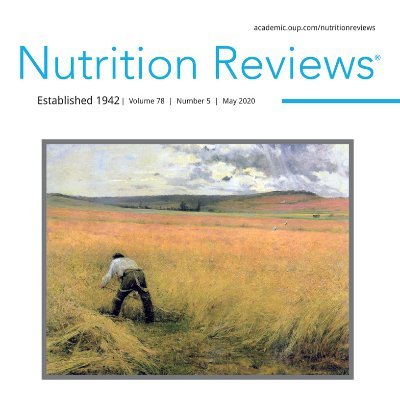
Blueberry, cranberry, raspberry, and strawberry as modulators of the gut microbiota: target for treatment of gut dysbiosis in chronic kidney disease? From current evidence to future possibilities
2023 May 10 Nutrition Reviews Coutinho-Wolino KS, Melo MFS, Mota JC, Mafra D, Guimarães JT, Stockler-Pinto MB
Review Article Gut Microbiota Chronic Kidney Disease Strawberry Raspberry Blueberry CranberryBerry fruits such as blueberries, cranberries, raspberries, and strawberries could potentially improve gut microbiota and reverse dysbiosis in chronic kidney disease patients.
Research insights are moderated by the Research Hub team and offer an at-a-glance overview of interesting research findings.

2024 The Journal of Nutrition
Greater intake of blueberries considerably decreases the risk of age-related macular degeneration, while a remarkable dietary intake of anthocyanins inversely correlates with cataract incidents.
Cohort Study Age-Related Macular Degeneration Anthocyanins Eye Health
Intake of Blueberries, Anthocyanins, and Risk of Eye Disease in Women
Sesso HD, Rautiainen S, Park SJ, Kim E, Lee IM, Glynn RJ, et al.

2023 The American Journal of Clinical Nutrition
Moderate consumption of blueberries may effectively reduce bone loss in healthy postmenopausal women.
Experimental Study Bone Calcium
Moderate consumption of freeze-dried blueberry powder increased net bone calcium retention compared with no treatment in healthy postmenopausal women: a randomized crossover trial
Hodges JK, Maiz M, Cao S, Lachcik PJ, Peacock M, McCabe GP, et al.
2023 CNS & Neurological Disorders - Drug Targets
Blueberry consumption significantly improves two-back test accuracy, suggesting potential cognitive benefits.
Meta-Analysis Cognitive Function
The Potential Effect of Blueberry on Cognitive Health and Mood State
based on Human Intervention Studies: Systematic Review and Mini
Meta-Analysis
Soveid N, Barkhidarian B, Moradi S, Gholami F, Rasaei N, Himmerich H, et al.

2023 The American Journal of Clinical Nutrition
Consumption of blueberry powder daily improves vascular function, cognitive abilities, and reduces blood pressure in healthy older individuals.
Randomised Controlled Trial Cardiovascular Disease Cognitive Function High Blood Pressure
Wild blueberry (poly)phenols can improve vascular function and cognitive performance in healthy older individuals: a double-blind randomized controlled trial
Wood E, Hein S, Mesnage R, Fernandes F, Abhayaratne N, Xu Y, et al.

2023 Nutrition Reviews
Berry fruits such as blueberries, cranberries, raspberries, and strawberries could potentially improve gut microbiota and reverse dysbiosis in chronic kidney disease patients.
Review Article Chronic Kidney Disease Cranberry Gut Microbiota Raspberry Strawberry
Blueberry, cranberry, raspberry, and strawberry as modulators of the gut microbiota: target for treatment of gut dysbiosis in chronic kidney disease? From current evidence to future possibilities
Coutinho-Wolino KS, Melo MFS, Mota JC, Mafra D, Guimarães JT, Stockler-Pinto MB
Review Articles
Review articles summarise and critically evaluate the current state of research on a specific topic or field by synthesising multiple primary research studies.
The Potential Effect of Blueberry on Cognitive Health and Mood State based on Human Intervention Studies: Systematic Review and Mini Meta-Analysis
2023 Aug CNS & Neurological Disorders - Drug Targets Soveid N, Barkhidarian B, Moradi S, Gholami F, Rasaei N, Himmerich H, et al.
Meta-Analysis Systematic Review Blueberry Cognitive FunctionBlueberry consumption significantly improves two-back test accuracy, suggesting potential cognitive benefits.

Blueberry, cranberry, raspberry, and strawberry as modulators of the gut microbiota: target for treatment of gut dysbiosis in chronic kidney disease? From current evidence to future possibilities
2023 May 10 Nutrition Reviews Coutinho-Wolino KS, Melo MFS, Mota JC, Mafra D, Guimarães JT, Stockler-Pinto MB
Review Article Gut Microbiota Chronic Kidney Disease Strawberry Raspberry Blueberry CranberryBerry fruits such as blueberries, cranberries, raspberries, and strawberries could potentially improve gut microbiota and reverse dysbiosis in chronic kidney disease patients.
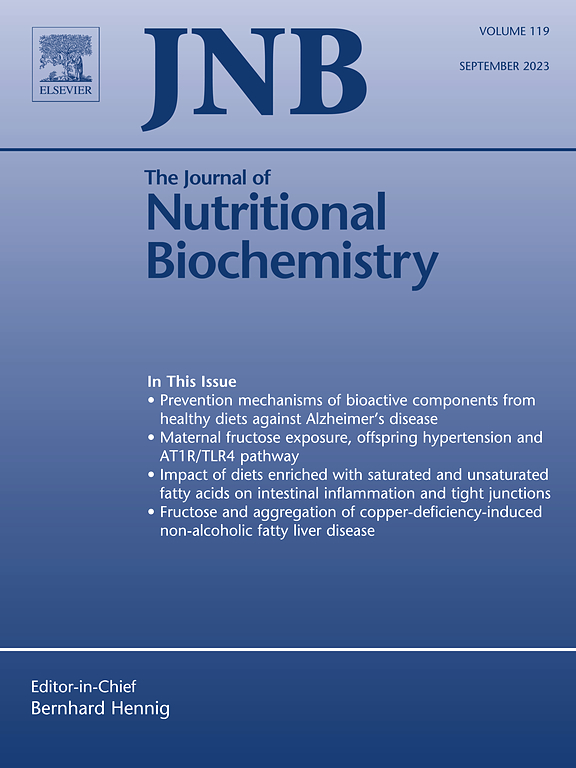
Blueberries and their bioactives in the modulation of oxidative stress, inflammation and cardio/vascular function markers: a systematic review of human intervention studies
2023 Jan The Journal of Nutritional Biochemistry Martini D, Marino M, Venturi S, Tucci M, Klimis-Zacas D, Riso P, et al.
Blueberries may improve markers of vascular function, particularly in individuals with risk factors or diseases, but the effects on inflammation, oxidative stress, and cardiometabolic risk markers are inconsistent and may vary depending on study design and participant characteristics.
Systematic Review Blueberry Vascular Function
Cherries and Blueberries-Based Beverages: Functional Foods with Antidiabetic and Immune Booster Properties
2022 May 20 Molecules Gonçalves AC, Nunes AR, Flores-Félix JD, Alves G, Silva LR
Review Article Antioxidant Anti-Inflammatory Immunity Type 2 Diabetes Blueberry Cherry Anti-DiabeticCherries and blueberries, rich in phenolic compounds, can be effectively used in pharmaceutical products, smart foods, functional beverages, and nutraceuticals to prevent or treat diseases.
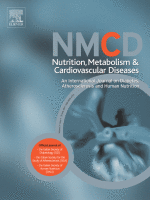
Effects of blueberry and cranberry on type 2 diabetes parameters in individuals with or without diabetes: A systematic review and meta-analysis of randomized clinical trials
2022 May Nutrition, Metabolism and Cardiovascular Diseases Delpino FM, Figueiredo LM, Gonçalves da Silva T, Flores TR
Meta-Analysis Systematic Review Blood Sugar Cranberry Type 2 DiabetesBlueberry and cranberry consumption significantly lowered fasting blood glucose and glycated hemoglobin levels in individuals with diabetes.
Clinical Trials
Clinical trials are research studies that involve people and are conducted to evaluate the safety and efficacy of new treatments or interventions, such as drugs, medical devices, or behavioural therapies.

Moderate consumption of freeze-dried blueberry powder increased net bone calcium retention compared with no treatment in healthy postmenopausal women: a randomized crossover trial
2023 Aug The American Journal of Clinical Nutrition Hodges JK, Maiz M, Cao S, Lachcik PJ, Peacock M, McCabe GP, et al.
Experimental Study Clinical Study Randomised Controlled Trial Bone Calcium BlueberryModerate consumption of blueberries may effectively reduce bone loss in healthy postmenopausal women.

Wild blueberry (poly)phenols can improve vascular function and cognitive performance in healthy older individuals: a double-blind randomized controlled trial
2023 Jun The American Journal of Clinical Nutrition Wood E, Hein S, Mesnage R, Fernandes F, Abhayaratne N, Xu Y, et al.
Randomised Controlled Trial Cognitive Function Blueberry High Blood Pressure Cardiovascular DiseaseConsumption of blueberry powder daily improves vascular function, cognitive abilities, and reduces blood pressure in healthy older individuals.
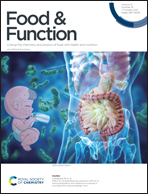
Daily blueberry consumption for 12 weeks improves endothelial function in postmenopausal women with above-normal blood pressure through reductions in oxidative stress: a randomized controlled trial
2023 Jan Food & Function Woolf EK, Terwoord JD, Litwin NS, Vazquez AR, Lee SY, Ghanem N, et al.
Daily consumption of freeze-dried blueberry powder for 12 weeks improves endothelial function through reduced oxidative stress in postmenopausal women with above-normal blood pressure.
Randomised Controlled Trial Blueberry Oxidative Stress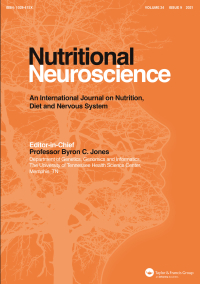
Six-month intervention with wild blueberries improved speed of processing in mild cognitive decline: a double-blind, placebo-controlled, randomized clinical trial.
2022 Sep 06 Nutritional Neuroscience Cheatham CL, Canipe LG, Millsap G, Stegall JM, Chai SC, Sheppard KW, et al.
Randomised Controlled Trial Blueberry Brain Health Cognitive FunctionConsumption of wild blueberries over six months can improve cognitive performance and speed of processing information amongst older adults.

Effects of Blueberry Consumption on Cardiovascular Health in Healthy Adults: A Cross-Over Randomised Controlled Trial
2022 Jun 21 Nutrients Wang Y, Gallegos JL, Haskell-Ramsay C, Lodge JK
Randomised Controlled Trial BlueberryBoth whole blueberries and freeze-dried blueberry powder significantly enhanced plasma nitrite levels, a marker of cardiovascular health, but did not significantly affect other cardiovascular risk factors.
Study Protocols
Published study protocols are detailed plans that outline the objectives, methodology, statistical analyses, and organisation of a research study that have been made publicly available for others to review and use as a reference.
Presentation Slides

Cohort Study
Greater intake of blueberries considerably decreases the risk of age-related macular degeneration, while a remarkable dietary intake of anthocyanins inversely correlates with cataract incidents.
Sesso HD, Rautiainen S, Park SJ, Kim E, Lee IM, Glynn RJ, Buring JE, Christen WG

Experimental Study
Moderate consumption of blueberries may effectively reduce bone loss in healthy postmenopausal women.
Hodges JK, Maiz M, Cao S, Lachcik PJ, Peacock M, McCabe GP, McCabe LD, Cladis DP, Jackson GS, Ferruzzi MG, Lila MA, Bailey RL, Martin BR, Weaver CM

Meta-Analysis
Blueberry consumption significantly improves two-back test accuracy, suggesting potential cognitive benefits.
Soveid N, Barkhidarian B, Moradi S, Gholami F, Rasaei N, Himmerich H, Mirzaei K

Randomised Controlled Trial
Consumption of blueberry powder daily improves vascular function, cognitive abilities, and reduces blood pressure in healthy older individuals.
Wood E, Hein S, Mesnage R, Fernandes F, Abhayaratne N, Xu Y, Zhang Z, Bell L, Williams C, Rodriguez-Mateos A

Review Article
Berry fruits such as blueberries, cranberries, raspberries, and strawberries could potentially improve gut microbiota and reverse dysbiosis in chronic kidney disease patients.
Coutinho-Wolino KS, Melo MFS, Mota JC, Mafra D, Guimarães JT, Stockler-Pinto MB

Experimental Study
The anthocyanins from the Gardenblue variety of blueberries exhibit strong antiproliferative effects on various cancer cells, especially liver cancer cells.
Zhao F, Wang J, Wang W, Lyu L, Wu W, Li W

Randomised Controlled Trial
Consumption of wild blueberries over six months can improve cognitive performance and speed of processing information amongst older adults.
Cheatham CL, Canipe LG, Millsap G, Stegall JM, Chai SC, Sheppard KW, Lila MA

Randomised Controlled Trial
Both whole blueberries and freeze-dried blueberry powder significantly enhanced plasma nitrite levels, a marker of cardiovascular health, but did not significantly affect other cardiovascular risk factors.
Wang Y, Gallegos JL, Haskell-Ramsay C, Lodge JK

Review Article
Cherries and blueberries, rich in phenolic compounds, can be effectively used in pharmaceutical products, smart foods, functional beverages, and nutraceuticals to prevent or treat diseases.
Gonçalves AC, Nunes AR, Flores-Félix JD, Alves G, Silva LR

Meta-Analysis
Blueberry and cranberry consumption significantly lowered fasting blood glucose and glycated hemoglobin levels in individuals with diabetes.
Delpino FM, Figueiredo LM, Gonçalves da Silva T, Flores TR
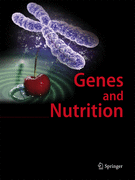
Randomised Controlled Trial
Consumption of blueberry supplement did not show significant improvement in metabolic health markers, however, it induced changes in gene expression, indicating a potential longer-term effect.
Rousseau M, Horne J, Guénard F, de Toro-Martín J, Garneau V, Guay V, Kearney M, Pilon G, Roy D, Couture P, Couillard C, Marette A, Vohl MC

Clinical Study
Consumption of blueberries can alter levels of certain beneficial compounds in the blood, potentially contributing to improved cognitive function in older adults.
Rutledge GA, Sandhu AK, Miller MG, Edirisinghe I, Burton-Freeman BB, Shukitt-Hale B

Meta-Analysis
Supplementation with blueberry shows a potential for beneficial impact on reducing body weight, which might indirectly influence cardiovascular disease risk factors.
Miraghajani M, Momenyan S, Arab A, Hasanpour Dehkordi A, Symonds ME
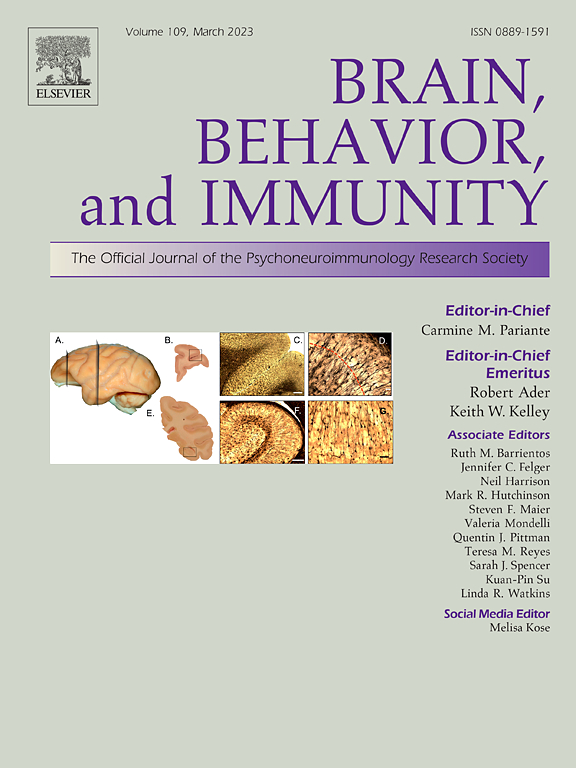
Systematic Review
Blueberries and their products may improve certain measures of cognitive performance, particularly memory, and positively affect mood.
Travica N, D'Cunha NM, Naumovski N, Kent K, Mellor DD, Firth J, Georgousopoulou EN, Dean OM, Loughman A, Jacka F, Marx W

Review Article
Blueberry anthocyanins have a potential role in preventing osteoporosis and demonstrate positive antioxidant and anti-inflammatory activity.
, Jones DR
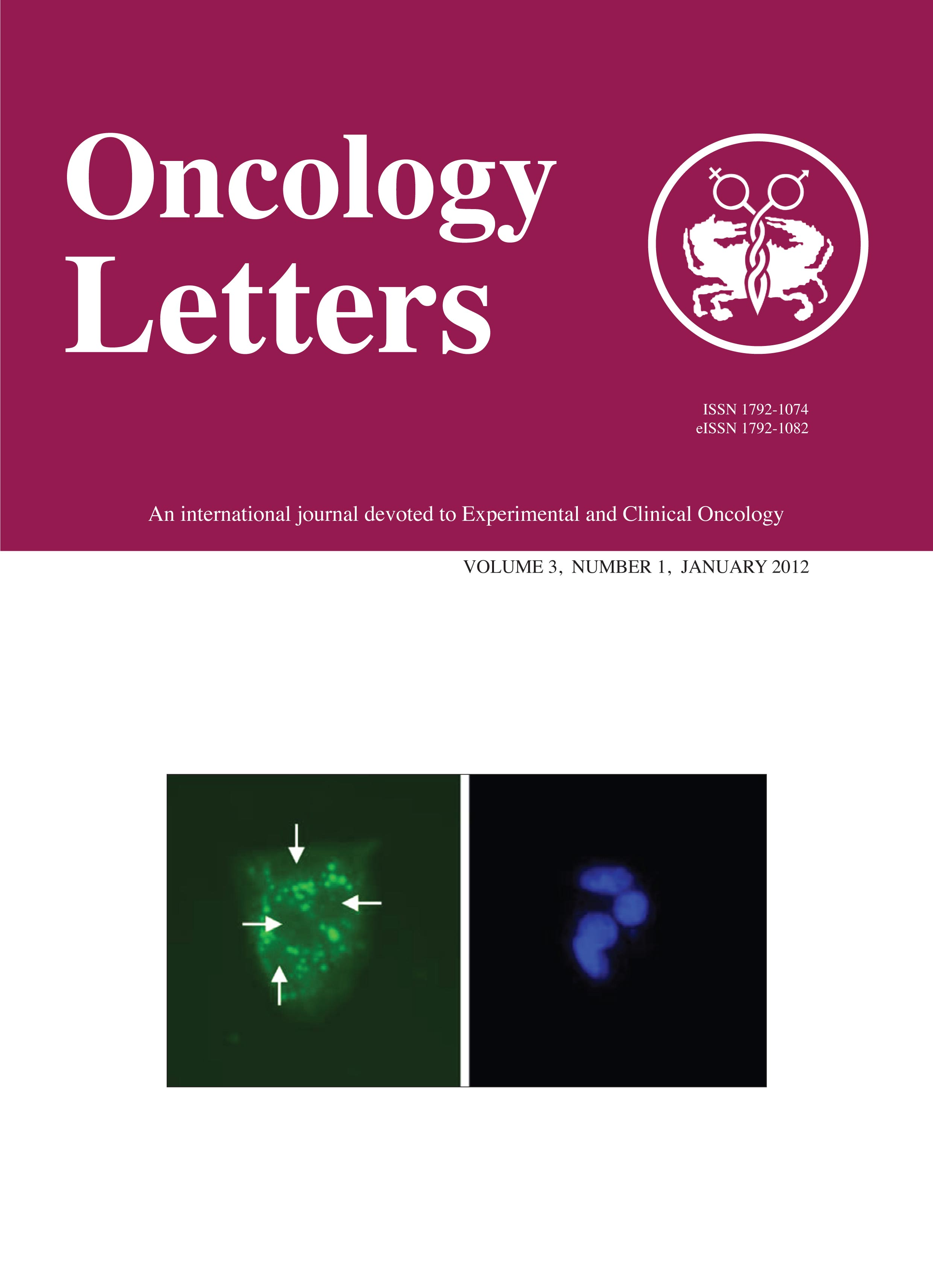
Animal Study
Blueberries can reduce the proliferation of ovarian cancer cells by downregulating the levels of specific biomarkers, exhibiting potential for non-pharmaceutical therapy.
Lin W, Li Z

Clinical Study
Blueberry intake for four weeks decreased levels of a biomarker for oxidative DNA damage in postmenopausal women with pre and early stage hypertension.
Johnson SA, Feresin RG, Navaei N, Figueroa A, Elam ML, Akhavan NS, Hooshmand S, Pourafshar S, Payton ME, Arjmandi BH
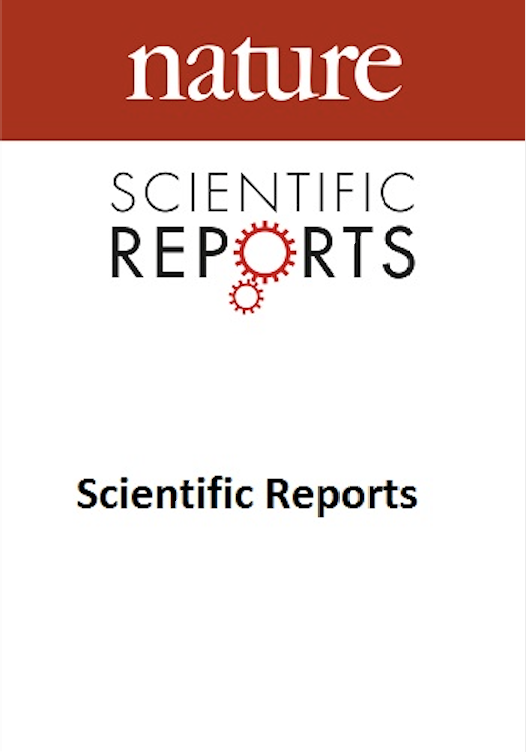
Experimental Study
The component pterostilbene, found naturally in blueberries, shows potential in preventing inflammation and oxidative stress on the human cornea, suggesting protection against dry eyes.
Li J, Ruzhi Deng , Hua X, Zhang L, Lu F, Coursey TG, Pflugfelder SC, Li DQ
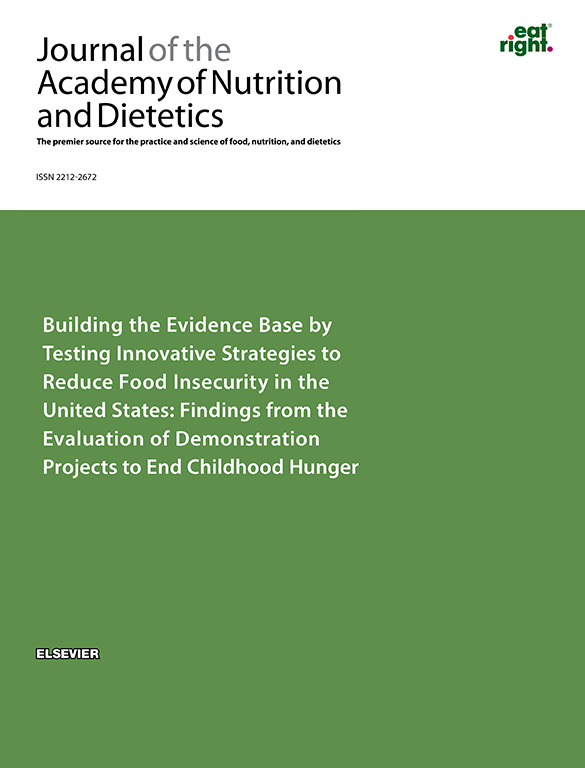
Clinical Study
Daily consumption of blueberries may decrease blood pressure and arterial stiffness in postmenopausal women due to increased nitric oxide production.
Johnson SA, Figueroa A, Navaei N, Wong A, Kalfon R, Ormsbee LT, Feresin RG, Elam ML, Hooshmand S, Payton ME, Arjmandi BH
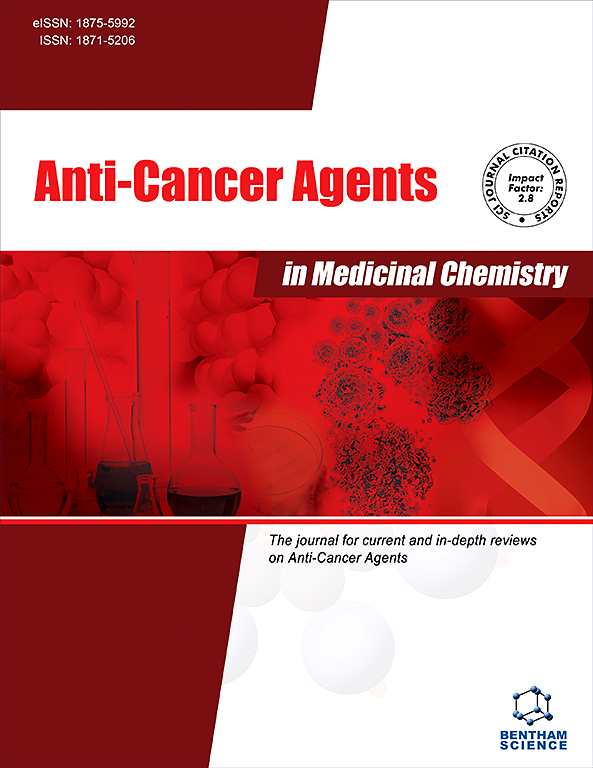
Review Article
Blueberries, due to their phenolic compounds, show potential as both dietary and supplemental anti-cancer agents by inhibiting cancer cell growth and promoting apoptosis.
Johnson S, Arjmandi B

Experimental Study
Blueberry consumption prior to puberty can significantly prevent bone cell senescence and bone loss induced due to the removal of ovaries in rats.
Zhang J, Lazarenko OP, Blackburn ML, Badger TM, Ronis MJJ, Chen JR

Experimental Study
Blueberry consumption can prevent bone loss and positively impact bone metabolism in ovariectomized rats.
Devareddy L, Hooshmand S, Collins JK, Lucas EA, Chai SC, Arjmandi BH
Executive Summary
Write an executive summary in the form of a blog article on the topic of "Research into Chinese medicine treatment for Blueberry" summarising the research below and using language that can be easily understood by patients and avoiding medical jargon using a professional and caring tone of voice.
Write an executive summary in the form of a blog article on the topic of "Researched Chinese medicine treatments for Blueberry" summarising the research below in an objective and easy to understand way, and using language that can be easily understood by patients. Group the article into Chinese medicine treatments first, followed by nutrition and other treatments. Avoid using medical jargon and use a professional and caring tone of voice.
Write me a concise but easy to understand executive summary on the topic of "Chinese medicine treatments for Blueberry" based on the following research that I will give you. Your summary should be 2 paragraphs long in Australian English spelling and include references to the studies.
A Cohort Study published in 2024 in the journal The Journal of Nutrition found that Greater intake of blueberries considerably decreases the risk of age-related macular degeneration, while a remarkable dietary intake of anthocyanins inversely correlates with cataract incidents. Middle-aged and older women, numbering 36,653 and 35,402 originally without cataract and AMD, provided data for the study via semiquantitative food frequency questionnaires. Insights were derived on the consumption of blueberries by these women, with frequency varied from none to over two servings weekly. Additionally, total anthocyanin consumption was analysed, with major subclasses adjusted for energy and then into quintiles. Self-reported risk factors for eye diseases were adjusted in the multivariable hazard ratios. On analysis, it was found that a significant portion of participants consumed a minimum of one serving of blueberries weekly. Thus, compared to no blueberry intake, it was observed that those consuming the fruit exhibited a decrease in the total instances of AMD, while visually significant AMD remained unaffected. Furthermore, dietary anthocyanin showed a modest yet significant inverse association with cataract occurrences, but no notable correlation with AMD.
A Experimental Study published in 2023 in the journal The American Journal of Clinical Nutrition found that Moderate consumption of blueberries may effectively reduce bone loss in healthy postmenopausal women. The research began with a blueberry dose-response study with ovariectomized rats, used as an experimental model simulating postmenopausal conditions. These rats were fed with various doses of blueberry powder, with the aim to identify an optimal dosage for bone calcium retention. The experiment then translated to a human study where fourteen healthy women, all more than four years past menopause, were examined. A baseline was established, and then each participant was provided with varying dosages of freeze-dried blueberry powder equivalent to defined portions of fresh blueberries, to be consumed daily for a series of six weeks at a time. Tracing calcium in the urine was employed as a method to monitor bone calcium balances in both the rat and human trials. The collected data indicated that both the rat and human subjects benefited from blueberry interventions at lower doses. Higher doses, however, showed no such beneficial impact on bone calcium balance. In human subjects, net bone calcium retention increased with low and medium doses of blueberry consumption. Increased urinary excretion of hippuric acid, a metabolite of the antioxidants present in blueberries, was observed with an increase in blueberry consumption. No significant associations were found between bone resorption biomarkers and the interventions implemented in the study.
A Meta-Analysis published in 2023 in the journal CNS & Neurological Disorders - Drug Targets found that Blueberry consumption significantly improves two-back test accuracy, suggesting potential cognitive benefits. Methodology: A comprehensive search was conducted in April 2021 for relevant clinical trials on blueberry supplementation and its effects on cognitive performance and mood. The search was conducted through PubMed/Medline, Scopus, Embase, and Google Scholar, and the random effect size was used to estimate the pooled effect size. Cochrane Q test and I-squared tests were used to evaluate heterogeneity between studies, and a subgroup analysis was done to detect potential sources of such heterogeneity. Fourteen randomized trials were included in the quantitative analysis, and six were pooled for statistical analysis. Results: Blueberry intervention did not produce any significant impact on mood state score, attention task reaction time, or on the percentages of attention task accuracy. Similarly, it had no significant effect on one-back test accuracy. However, a noticeable positive effect was detected in two-back test accuracy, indicating possible cognitive benefits associated with blueberry consumption.
A Randomised Controlled Trial published in 2023 in the journal The American Journal of Clinical Nutrition found that Consumption of blueberry powder daily improves vascular function, cognitive abilities, and reduces blood pressure in healthy older individuals. This double-blind, parallel randomized controlled trial engaged 61 healthy older individuals aged between 65 to 80 years old. Participants were given either 26g of freeze-dried wild blueberry (WBB) powder, comprising 302 mg anthocyanins, or a similar placebo with zero mg anthocyanins. Measurements were made for endothelial function, cognitive function, arterial stiffness, blood pressure, cerebral blood flow, gut microbiome, and blood parameters, both at the start of the trial and again following 12 weeks of daily consumption. In addition, plasma and urinary polyphenol metabolites were analyzed through the use of microelution solid-phase extraction combined with liquid chromatography-mass spectrometry. In the WBB group, there was a notable increase in endothelial function and a decrease in 24-hour ambulatory systolic blood pressure, when compared to the placebo group. Enhanced immediate recall on the auditory verbal learning task was also observed, along with better accuracy on a task-switch task following administering of WBB. Notably, the total 24-hour urinary excretion of polyphenols also significantly increased in the WBB group comparative to the control group. In contrast, there were no discernible changes in cerebral blood flow or gut microbiota composition. These findings imply that WBB polyphenols could contribute to reducing future cardiovascular disease risk in older populations, and might enhance memory processes and executive functioning in older adults at risk of cognitive decline.
A Review Article published in 2023 in the journal Nutrition Reviews found that Berry fruits such as blueberries, cranberries, raspberries, and strawberries could potentially improve gut microbiota and reverse dysbiosis in chronic kidney disease patients. Methodology: This research explores the therapeutic potential of berry fruits, including blueberries, cranberries, raspberries, and strawberries, in relation to modulating gut microbiota in chronic kidney disease (CKD) patients. The fruit’s rich polyphenol and nutrient content are assumed to promote the selective growth of beneficial bacteria, thus improving the clinical status of these patients. The study scrutinizes the impact on the abundance of mucus-producing bacteria and short-chain fatty acids specifically. Discussion of Results: The gathered evidence illustrates that berry fruits, particularly with a daily intake of 5 mg, can promote diversity in the gut microbiota and possibly reverse dysbiosis, a common issue in chronic kidney disease patients. These fruits are found to increase the expression of mRNA involved in gut tight junctions such as occludin, TJP1, and mucin, and they may reduce uremic toxins by controlling the gut microbiota, improving the uremic condition. As such, long-term use of berry fruits could be an effective strategy for CKD patients.
A Experimental Study published in 2023 in the journal Molecules found that The anthocyanins from the Gardenblue variety of blueberries exhibit strong antiproliferative effects on various cancer cells, especially liver cancer cells. 65 varieties of blueberries were collected, focusing on their nutritional and functional values. Among these, the Gardenblue variety showed the highest anthocyanin content in fresh fruit. This content was further increased through the process of ultrasound-assisted solvent extraction and macroporous resin absorption, transforming it into a dried powder. Biological experiments were then conducted to determine the antiproliferative effects of Gardenblue anthocyanins on various cancer cell strains, such as cervical, liver, breast, and lung cells. Furthermore, these anthocyanins were combined with the chemotherapy drugs, cisplatin and doxorubicin, to assess any potential enhanced antiproliferative effects. The research results confirmed that Gardenblue anthocyanins exert a substantial antiproliferative effect on multiple cancer cell types, particularly hepatoma or liver cancer cells. These anthocyanins displayed no evident toxic effects, as measured by the MTT assay, a laboratory colorimetric technique. Notably, the antiproliferative benefits were amplified when the anthocyanins were combined with doxorubicin, a treatment for liver cancer. Analysis suggests that the anthocyanins might induce cell apoptosis (cell death) by bonding with DNA in a manner that modifies or damages the DNA, thus preventing cell proliferation. This suggests potential application of Gardenblue anthocyanin extract as a functional agent against liver cancer cells.
A Randomised Controlled Trial published in 2022 in the journal Nutritional Neuroscience found that Consumption of wild blueberries over six months can improve cognitive performance and speed of processing information amongst older adults. The methodology of this research involved conducting a double-blind, randomized placebo-controlled trial where participants with cognitive issues ascertained by Montreal Cognitive Assessment scores were asked to consume wild blueberry or placebo powder daily for a 6-month period. There was also a separate reference group involved, comprised of individuals devoid of any cognitive issues. These individuals were tested at the commencement and end of the trial using the Cambridge Neurological Test Automated Battery and an electrophysiological paradigm named event-related potentials. The results presented disclosed a significant improvement in the speed of processing information in the group consuming blueberries compared to the placebo group over the 6-month intervention period. Additionally, the speed of this group's processing was re-established to the level of the reference group, revealing the restoration of cognitive abilities. The most distinct enhancement was noted in participants aged between 75-80 years in the blueberry group.
A Randomised Controlled Trial published in 2022 in the journal Nutrients found that Both whole blueberries and freeze-dried blueberry powder significantly enhanced plasma nitrite levels, a marker of cardiovascular health, but did not significantly affect other cardiovascular risk factors. In this study, a cross-over randomised controlled trial was carried out with three groups: one consuming fresh blueberries, one consuming freeze-dried blueberry powder, and one as the control group. All participated in 1 week of treatment, with a 1-week wash-out period between treatments. The study involved the measurement of systolic and diastolic blood pressure, pulse wave velocity, plasma cholesterol levels (low-density and high-density lipoprotein cholesterol and total cholesterol), triglyceride levels, and glucose and nitrite concentrations. The results indicated an improvement of plasma nitrite levels following both whole blueberry and blueberry powder supplementations compared to their baselines, hinting at potential benefits to cardiovascular health. However, no other significant effects were observed for blood pressure, total cholesterol, low-density and high-density lipoprotein cholesterol, triglycerides, or glucose. Also, none of the changes in individual treatment arms were significantly different from the control. Essentially, the form of blueberry consumed, whether whole or in powder form, did not show any unique advantage in improving cardiovascular health factors.
A Review Article published in 2022 in the journal Molecules found that Cherries and blueberries, rich in phenolic compounds, can be effectively used in pharmaceutical products, smart foods, functional beverages, and nutraceuticals to prevent or treat diseases. The research primarily studied the health-promoting potential of cherries and blueberries, given their high nutritional density and substantial phenolic compounds. The focus was on their ability to counteract oxidative stress markers and suppress pro-inflammatory responses, which are significant factors in chronic diseases such as diabetes. The researchers analyzed these fruits for their potential incorporation into various products such as pharmaceutical preparations, smart foods, functional beverages, and nutraceuticals. In the discussion of the results, it was emphasized how cherries and blueberries exhibit significant biological potential. They were not only seen as effective in combatting oxidative stress and inflammation but also as potential immune boosters. The conclusions underscored the fruits' potential role as functional foods and their relevance to the burgeoning popularity of functional beverages, hinting at their promise for inclusion in a variety of health-related products.
A Meta-Analysis published in 2022 in the journal Nutrition, Metabolism and Cardiovascular Diseases found that Blueberry and cranberry consumption significantly lowered fasting blood glucose and glycated hemoglobin levels in individuals with diabetes. The research methodology involved a systematic literature review and meta-analysis using publications sourced from seven different databases (PubMed, LILACS, Scielo, Scopus, Web of Science, Cochrane, and Embase) up until May 2021. The researchers included randomized clinical trials where the effects of blueberry or cranberry on parameters linked to type 2 diabetes such as fasting blood glucose, insulin resistance, and glycated hemoglobin were compared. The quality of these studies was evaluated using the Cochrane scale while the Egger test was utilized to assess publication bias and the meta-regression evaluated the estimated effect sizes with potential moderator variables. Following an initial identification of 2034 studies, 39 full-text studies were read, out of which 22 met the criteria to be included in the final meta-analysis. The findings showed that individuals with diabetes experienced significant reductions in fasting blood glucose and glycated hemoglobin readings following the consumption of blueberries or cranberries. However, no significant effects were seen on insulin resistance. While the results were not universally significant when it came to the general population, an exception was found in the sensitivity analysis for fasting blood glucose.
A Randomised Controlled Trial published in 2021 in the journal Genes & Nutrition found that Consumption of blueberry supplement did not show significant improvement in metabolic health markers, however, it induced changes in gene expression, indicating a potential longer-term effect. The methodology of the study involved a randomized double-blind placebo-controlled intervention trial conducted with adults at risk of developing Metabolic Syndrome (MetS). Participants, consisting of 49 individuals, were asked to consume 50 grams daily of either a freeze-dried highbush blueberry powder or a placebo powder for a duration of 8 weeks. Metabolic Syndrome phenotypes were evaluated at the beginning, 4 weeks in, and at the end of the trial. To assess any metabolic changes, fasting blood gene expression profiles and plasma metabolomic profiles were observed at the start and the end of the 8 weeks. In examining the results, while significant change was reported for plasma triglyceride levels, the findings did not remain significant after adjusting for age, sex, BMI, and baseline values. Furthermore, no significant difference was observed with respect to body weight, blood pressure, fasting plasma lipid, insulin and glucose levels, insulin sensitivity, or glycated hemoglobin concentrations when comparing the blueberry supplement with the placebo. The distinctive findings were in gene expressions and the presence of certain metabolites. The blueberry supplement caused significant changes in 49 gene expressions and the abundance of 35 metabolites, and these differentially regulated genes largely belonged to immune-related pathways.
A Clinical Study published in 2021 in the journal Food & Function found that Consumption of blueberries can alter levels of certain beneficial compounds in the blood, potentially contributing to improved cognitive function in older adults. The research method involved a study on 38 healthy older adults between 60 to 75 years of age, over a 90-day period. Participants were randomly assigned to two groups – a blueberry group and a control group. The blueberry group received 24 grams of freeze-dried blueberries, equivalent to a cup of fresh berries, every day, while the control group received no treatment. Blood samples were taken from the subjects before breakfast and two hours post-breakfast, on the start day, the 45th day and the 90th day. Additionally, the study subjects also took cognitive tests on these days. Results showed that after 90 days, there were significant changes in the levels of circulating phenolic compounds, including such compounds as hippuric acid, phloroglucinaldehyde and syringic acid, among others, in the blood of those who had consumed blueberries. Moreover, improvements in cognitive functions were observed and these changes were linked to alterations in the concentrations of specific phenolic compounds like ferulic acid-glucuronide, syringic acid, and malvidin-3-galactoside. These results suggest a correlation between daily blueberry consumption, changes in phenolic compounds in the blood, and improvements in brain performance.
A Meta-Analysis published in 2020 in the journal Complementary Therapies in Medicine found that Supplementation with blueberry shows a potential for beneficial impact on reducing body weight, which might indirectly influence cardiovascular disease risk factors. The methodology involved searching various digital databases such as ISI Web of Science, Scopus, PubMed, and Cochrane Library in March 2020. The researchers looked for all randomized and controlled clinical trials that used blueberry supplements to modify cardiovascular disease risk factors. Inclusion criteria were not restricted by language. References lists from primary studies and review articles were also checked for any additional studies. The results showed that although blueberry supplementation had a small, insignificant effect in reducing plasma triglycerides, there were no differences found between blueberry and control groups for any other cardiovascular disease risk outcomes. However, subgroup analysis indicated a potential favorable impact of blueberry on reducing body weight. It was found that studies lasting longer than 6 weeks or those that used blueberry powder or freeze-dried blueberry were indicative of significant weight loss.
A Systematic Review published in 2020 in the journal Brain, Behavior, and Immunity found that Blueberries and their products may improve certain measures of cognitive performance, particularly memory, and positively affect mood. The systematic review process involved evaluating the results from randomized controlled trials that investigated the effects of blueberries and blueberry products on cognitive performance and mood. A total of eleven articles, encompassing twelve studies, were examined. The studies employed various forms of blueberries - freeze-dried, whole, and concentrate. Different demographic groups were considered across the studies: children, young adults, and older people with or without known cognitive impairment. The studies considered the impact of consumed or supplemented blueberries, varied in dosage and duration, on cognitive performance, specifically in relation to both short-term and long-term memory, as well as spatial memory. Also, the studies investigated the effects on mood, particularly the potential enhancement of positive feelings. The findings revealed that eight out of twelve studies reported an improvement in cognitive performance following the ingestion of blueberries, although variations in each specific study's design, dosage, and anthocyanin content made cross-study comparisons challenging. Regarding mood, out of five studies, only one study reported a significant improvement in mood upon consumption of blueberry products, while the others reported no significant change. Despite differences, all studies featured a low risk of bias overall, underscoring the perceived validity of these findings.
A Review Article published in 2018 in the journal Advances in Food Technology and Nutritional Sciences - Open Journal found that Blueberry anthocyanins have a potential role in preventing osteoporosis and demonstrate positive antioxidant and anti-inflammatory activity. The methodology of the research involved gathering prior studies and examining the in vitro and in vivo evidence surrounding anthocyanin content and bioavailability from blueberries. The focus of these studies was on both individual chemical structures and the diversity of anthocyanins found in blueberries. The main findings showed that anthocyanins, especially from blueberries, can have a positive impact on bone health. More specifically, they could improve the balance between osteoblasts, cells that form bone, and osteoclasts, cells that dissolve bone. This could potentially prevent osteoporosis. Moreover, even though direct anthocyanin effects on joints from blueberries have not been widely reported, existing studies of isolated anthocyanins common to the blueberry but from other foods, show promising antioxidant and anti-inflammatory activity.
A Animal Study published in 2017 in the journal Oncology Letters found that Blueberries can reduce the proliferation of ovarian cancer cells by downregulating the levels of specific biomarkers, exhibiting potential for non-pharmaceutical therapy. The research method involved the overexpression or silencing of cyclooxygenase (COX)-1 and COX-2, known biomarkers of ovarian cancer, in SKOV3 ovarian cancer cells. The effect of blueberries on the cells' viability was then measured utilizing a colorimetric assay known as an MTT test. Additionally, a mouse model for ovarian cancer was established to further this investigation. The results revealed that the administration of blueberries led to the inhibition of ovarian cancer cell proliferation, primarily through decreased levels of COX-1 and COX-2. Furthermore, regular consumption of blueberries greatly reduced the tumor size in the ovarian cancer mouse model compared to the control without blueberry treatment. This indicates that blueberries might have considerable potential as a natural therapy for ovarian cancer due to fewer side effects and high effectiveness.
A Clinical Study published in 2017 in the journal Food & Function found that Blueberry intake for four weeks decreased levels of a biomarker for oxidative DNA damage in postmenopausal women with pre and early stage hypertension. In the experiment, a randomized, parallel-arm, double-blind, placebo-controlled clinical trial was carried out with 40 postmenopausal women, aged 45 to 65 years, who were either pre or at stage 1 of hypertension. The participants were randomly divided into two, where one group ingested 22 g of freeze-dried highbush blueberry powder every day and the other a placebo. The biomarkers for oxidative DNA damage, oxidative stress, inflammation, and antioxidant defense were evaluated at the commencement, in the middle, and at the end of the eight week period. The levels of the biomarker for oxidative DNA damage, 8-hydroxy-2'-deoxyguanosine (8-OHdG), were found to drop significantly in the group consuming blueberries at the end of the fourth week when compared to the placebo group. However, the levels didn't show a significant difference between the groups at the end of the eighth week. No noteworthy changes were observed in the other measured biomarkers as a result of blueberry consumption.
A Experimental Study published in 2016 in the journal Scientific Reports found that The component pterostilbene, found naturally in blueberries, shows potential in preventing inflammation and oxidative stress on the human cornea, suggesting protection against dry eyes. This research employed an in vitro culture model of human corneal epithelial cells, exposing these cells to a hyperosmotic medium. Gene expression was observed via RT-qPCR, while protein production or activity was found using methods including ELISA, zymography, Western blotting, and immunofluorescent staining. Reactive oxygen species' production was also monitored using a DCFDA kit. Pterostilbene was administered and its effects on the expression of pro-inflammatory mediators and reactive oxygen species production were subsequently observed. The results showed that in corneal cells exposed to hyperosmotic medium, the addition of pterostilbene resulted in a notable decrease in the expression of pro-inflammatory mediators and suppressed overproduction of reactive oxygen species. Furthermore, pterostilbene also showed a significant decrease in the levels of oxidative damage biomarkers; it was found to rebalance homeostasis between oxygenases and anti-oxidative enzymes, demonstrating that pterostilbene has potentially protective effects on the human cornea from inflammation and oxidative stress.
A Clinical Study published in 2015 in the journal Journal of the Academy of Nutrition and Dietetics found that Daily consumption of blueberries may decrease blood pressure and arterial stiffness in postmenopausal women due to increased nitric oxide production. The research was an 8-week, randomized, double-blind, placebo-controlled clinical trial involving forty-eight postmenopausal women with pre- and stage 1-hypertension from the Tallahassee, FL, area. Participants were randomly given either 22 grams of freeze-dried blueberry powder or 22 grams of control powder. Resting blood pressures were evaluated, and arterial stiffness was assessed using pulse wave velocity measurements. In addition, levels of C-reactive protein, nitric oxide, and superoxide dismutase were measured at the beginning, in the middle, and at the end of the trial. After 8 weeks, the women in the blueberry powder group showed a significant decrease in both systolic and diastolic blood pressure and pulse wave velocity compared to their baseline levels, indicating a reduction in blood pressure and arterial stiffness. In contrast, no changes were observed in the control group. Furthermore, nitric oxide levels were found to be significantly higher in the blueberry group at the end of the trial, suggesting that the observed vascular benefits may be linked to increased nitric oxide production.
A Review Article published in 2013 in the journal Anti-Cancer Agents in Medicinal Chemistry found that Blueberries, due to their phenolic compounds, show potential as both dietary and supplemental anti-cancer agents by inhibiting cancer cell growth and promoting apoptosis. The researchers synthesized evidence from previous in vitro, in vivo, and a limited number of clinical studies to evaluate the anti-cancer efficacy of blueberries. These studies primarily focused on the fruit's phenolic compounds, which are known for their high antioxidant capacity. The mechanisms underlying the anti-cancer effects of blueberries were analyzed, such as their capacity to inhibit the production of pro-inflammatory molecules, oxidative stress, and products of oxidative stress like DNA damage. In the discussion of the results, it was found that blueberries manifest their anti-cancer properties through the inhibition of cancer cell proliferation and induction of apoptosis. This makes them promising functional foods and nutritional supplements. The evidence strongly indicates the high potential of blueberries as a preventive measure against carcinogenesis, solidifying their position as an anti-cancer fruit. The potential of blueberries in this field certainly demands further exploration.
A Experimental Study published in 2012 in the journal AGE found that Blueberry consumption prior to puberty can significantly prevent bone cell senescence and bone loss induced due to the removal of ovaries in rats. The methodology used in the study involves two parts: an in-vivo study and an in-vitro study. In the in-vivo portion, immature rats were fed a diet supplemented with blueberries either throughout their development or only prior to puberty, and then subjected to ovariectomy. The changes in bone collagen matrix and senescence markers were then examined. In the in-vitro part, three different bone cell lines were studied for cellular senescence pathways. The bone cells were treated with serum either from ovariectomized rats or from blueberry-fed ovariectomized rats to observe the effects on osteoblastic cell senescence pathways and potential to differentiate into adipocytes. The results showed that ovariectomy led to bone loss, a decrease in collagen and Sirt1, and an increase in the senescence markers collagenase and p16/p21. However, feeding blueberry-supplemented diet to rats prior to puberty prevented these ovariectomy-induced effects. The in-vitro studies revealed that collagen inhibited senescence in a dose-response manner, and serum from ovariectomized rats accelerated osteoblastic cell senescence pathways. It also revealed that bone cell senescence is associated with decreased Sirt1 expression and increased p53, p16, and p21. However, this acceleration did not occur when cells were treated with serum from blueberry-fed ovariectomized rats.
A Experimental Study published in 2008 in the journal The Journal of Nutritional Biochemistry found that Blueberry consumption can prevent bone loss and positively impact bone metabolism in ovariectomized rats. The research involved thirty 6-month-old female Sprague-Dawley rats. Some rats were ovariectomized to simulate post-menopausal conditions and then divided into three groups: Sham-operated, control (ovariectomized but no intervention), and a group that was ovariectomized and given a 5% blueberry diet. After being on this diet for 100 days, the effects of the blueberries on bone health were evaluated through the assessment of Bone Mineral Density (BMD) and content in the whole body, right tibia, right femur, and fourth lumbar vertebra through dual-energy X-ray absorptiometry. In terms of the results, the ovariectomy caused a loss of BMD in the whole body, tibia, femora, and lumbar region, whereas the blueberry diet prevented this loss in the whole body. It also somewhat reduced the loss in the tibia and femur. The bone-protective effects of the blueberries were attributed to them suppressing the ovariectomy-induced increase in bone turnover. This was shown by reduced levels of various cellular components linked to bone metabolism in the femoral bone and serum of rats on the blueberry diet, compared to the ovariectomized control group.
Moderation Tools
Topic
Sign In
Users not signed in are limited to viewing the 5 most recent items of content.